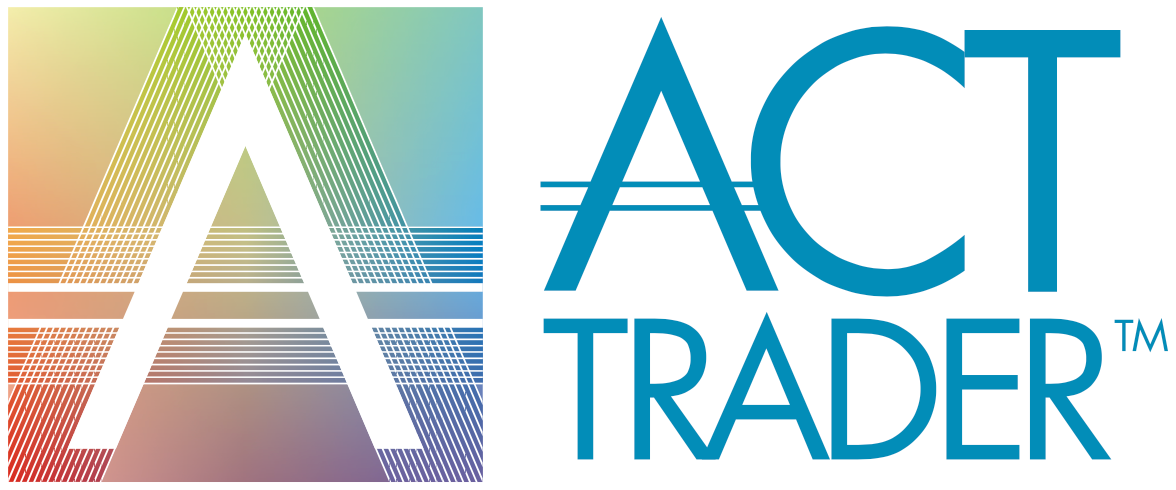There has always been a payments conundrum to solve in the retail Forex financial services. Various innovative payment methods have been proliferating, from ATM to mobile, P2P, credit and debit cards, and more. This journey of payment solutions has been fascinating, but the reinvention is long overdue, especially in cross-border payment solutions. The next innovation is the Digital Currencies based on the Distributed Ledger Blockchain Technology (DLT).
Digital Currencies As A Whole
Cryptocurrencies gained popularity in 2017 as an alternative to fiat currencies. Bitcoin is now worth around $50,000, and those skeptics will feel FOMO (Fear Of Missing Out) since they didn’t make a profit from its move to the mainstream. Many companies and retailers have started accepting cryptocurrencies for payments as more people invest and obtain these digital assets. Furthermore, more countries are listing them as valid payment methods. For example, Japan declared bitcoin as a legal tender which provoked major retailer Marui to take Bitcoin for payments.
Before deep-diving into Digital currencies and their applications in the forex industry, let’s investigate some payment-related pain points on both traders’ and brokers’ sides.
Breaking Down the Problems
The retail Forex trading industry is one of the world’s largest and most active markets, yet it is considered high-risk by the traditional mainstream financial industry. Consequently, many well-known payment facilitators choose to only work with brokers based on very prohibitive predefined criteria, which leads brokers to seek the services of less reliable and more costly payment providers. Although it is crucial to use credible financial service providers, both traders and brokers are now facing many challenges in terms of payment methods in retail Forex trading, which are better explained through the following points:
Traders
● Many forex brokers are still operating using traditional payment methods such as bank transfers, cheques, credit cards, and debit cards. But little do they know that cross-border forex transactions carry many ‘hidden’ charges, and traders relying on bank transactions could be paying a much higher fee.
● Generally, the deposits and withdrawals are delayed due to multiple intermediaries involved in the process, leading to the loss of a trading opportunity.
● Since there are multiple third-party integrators and e-wallets providers, there is always a risk of scams or money losses in the process. It makes the traditional fund transfer methods costly, lengthy, and may not be fully transparent.
Brokers
● The legal, regulatory, and administrative processes correlated with cross-border payments have made the payment process of traders and brokers complex, cumbersome, and expensive, thus disrupting businesses’ continued growth plans.
● It is a known fact that traders look for a broker with cheaper, quicker, and simpler funding methods, along with the best user experience. But the dilemma stands: would it be possible to reduce the onboarding time and costs if we still have to include the forex conversion fees, cross-border fees, banking fees, and other ‘hidden’ surcharges, which could be eating into brokers’ margins?
Fortunately, digital payments create value for both stakeholders and solve these payment problems conveniently and effectively.
Fintech Evolution
The retail forex industry has been through some seismic changes over the past decade. Cashless payment methods have been around, and now it has expanded into a broad range of technologies such as physical cards, mobile apps, and digital wallets.
Technology advancements in this era are changing the whole economic system, even the currency itself. And the answer to the current payment conundrum is by implementing blockchain-enabled payments into your forex merchant solutions. It's a bonus as cryptocurrency allows traders to secure rates at the time of booking and hedge them from currency fluctuations.
The concept of “Uberized Finance” could generate a potential disruption in the forex industry. A decentralised DLT-based payments solution can essentially eliminate all intermediaries within the payment process. Blockchain-enabled solutions such as bitcoin payments are improving the current payment scenario and becoming the next big thing.
Drivers For Change
The policy changes have historically influenced the retail Forex trading industry. Just as FinTech has resulted in massive changes and improvements throughout the financial industry in the 21st century, the driving force behind the changes in the forex industry does not solely lie in governmental policies anymore. Blockchain-based Cryptocurrencies are all set to completely reform the effectiveness and security of the retail forex market.
The global pandemic also pushed the need for digital currencies and saw their broad acceptance in the payments ecosystem. Consequently, the companies began to adapt and improve their platforms to provide their traders with a positive user experience. It is a game-changer for the Forex Trading Platforms to adapt the DLT based crypto payment solutions. The benefits of bitcoin utilization within the forex industry are already becoming evident. Following are some of the benefits of the forex trading platforms implementing digital currencies as the primary payment method:
The Role of Intermediaries Will Diminish
The use of crypto payments significantly reduces the role of intermediaries such as financial institutions and governments. There is no central issuing institution for cryptocurrencies, making supervision by the government much more limited and absent in some cases. Blockchain Technology makes transactions transparent, reliable, and secure, eliminating unwanted interference by financial institutions. It results in participants trusting technology instead of people and institutions.
Real-Time Payments
The forex brokers can create a better user experience with fund transfers by creating more transparency, trust, and credibility among the traders. Besides, it will cut down operational and other third-party costs, reduce settlement delays and minimize regulatory and compliance restrictions for brokers. A study by Deloitte (2021) discovered that around 60% of people would be willing to pay a fee to process payments instantly. Most traders prefer to have real-time payments, especially those who process large volumes of global transactions.
Over the past decade, cross-border transactions delayed the payments for traders and brokers. Due to the global and demanding outlook of Forex trading, these outdated payment methods will be taken over by cryptocurrencies shortly. Crypto payments are almost instant and take minutes to process with major stable coins like Bitcoin, Litecoin, Ethereum in comparison to the bank-wire deposits that could take up to 2-3 business days. It plays a vital role in high-risk industries like Forex since it eliminates the business dilemmas arising from payment delays and errors. It is profitable for a forex broker to provide a cross-border solution that prioritises user experience, easiness, and agility.
No Hidden Fees
Standard currencies and foreign purchases commonly include third-party processing fees, maker and taker fees, and heavy conversion or exchange charges. On the other hand, crypto-based payments are fully transparent. Trading forex with cryptocurrencies does not have intermediary conventions or government intervention. Cryptocurrencies are also free from interest rates, banking fees, and country-specific inflation.
Enhanced Security
Fraud and chargebacks are a prevalent problem that is quite common in the Forex industry. However, cryptocurrency can eliminate this problem. Cryptocurrency is backed by a unique blockchain system, which makes transactions immutable and has reliable data protection. It is also more protected in terms of security, where traders do not need to disclose their bank details to make a bitcoin payment. Unlike other financial solutions, the Blockchain relies on cryptographic concepts. To prevent cybersecurity concerns, the traders can also store crypto wallets on any external disconnected storage device, like a portable hard drive or flash drive, making it inaccessible to online hackers.
Financial Transparency
All bitcoin transactions are visible to the public (without disclosing any private information), trackable, irreversible, and permanently stored in the Bitcoin network, preventing bribery, corruption, and tax evasion. Anyone can see the balance and all payment activities of any address. Also, it is not possible to file a charge-back for bitcoin sent to someone. Digital currencies should be able to diminish Money Laundering and reduce the false-positive rate in transaction surveillance. Furthermore, blockchain technology could improve stock transfer, proof of payment, and the considerable calculation to quantify stock prices in real-time.
Mobile Wallets
There is still a demand for plastic cards in society, and sometimes a physical thing like a card is considered safer. However, credit and debit cards are being used as funding sources for online payments and digital wallets such as Apple Pay, Android Pay, and PayPal, Blockchain based wallets will change this since they do not need to be connected to any other account, making it more convenient than the card-funded wallets. Faster, cheaper, and convenient are the USPs to define DLT based payment methods. Losing your traditional money wallet will become obsolete once we switch to digital currencies.
With this in mind, it’s essential to quickly and effectively eliminate these revenue-jeopardising issues as they occur. Many brokers are already mastering this ability to juggle different funding sources and provide merchants with plug-ins to accept these payment options. To do so most effectively, you should find a forex merchant solution provider that can understand the specific forex-related challenges you face, enabling you to accept any payment methods for traders including cryptocurrencies.
To guarantee that your forex broker can accommodate exceptional services to the global and demanding traders, consider a crypto merchant provider whose solution is innovative and futureproof, just like the dynamic forex industry itself.
ActTrader is one such provider offering end-to-end crypto payment processing solutions with multiple digital currencies, including Bitcoin (BTC), Ether (ETH), Litecoin (LTC), Bitcoin Cash (BCH), ERC tokens, and other 30+ cryptocurrencies. Being built on Blockchain Technology, the process is ultra-fast, more reliable with minimal operational costs. Your Forex merchant can now instantly exchange digital assets for 20+ fiat currencies and get paid directly into the bank accounts. You can also safely store your payments in the form of cryptocurrencies in digital wallets.
The Future of Forex Payments
This new Blockchain technology will eliminate the need for third parties. The payment processing will no longer rely on people. Instead, it will depend on an automated system that makes transactions checkable and accurate based on an intelligent mathematical model. But as we know, with all these wins comes to the challenges as well. The highly volatile nature, limited supply of cryptocurrencies, and the reluctance of government adoption may result in a long way before digital assets can be fully accepted as legal tender globally.
Despite all the potential barriers to mass adoption, we know that cryptocurrencies and blockchain technology are here to stay. The advantages that consumers seek in payments- decentralization, transparency, and flexibility are present in DLT based assets. Expanding the discussion to everything that blockchain can accomplish across numerous industries reinforces this point.
About ActTrader Technologies
ActTrader has been at the forefront of the fintech industry since the launch of its flagship trading application – ActTrader™ (formerly ActForex). From its beginnings in 2000, it has offered superior technology solutions and has grown to provide multi-asset financial technology products that have been trusted by millions of traders and hundreds of brokers worldwide. Its broad portfolio of end-to-end trading technology products has helped FX Brokers, ECN Venues, and financial institutions transform their trading operations.
At the end of 2020, ActTrader announced its acquisition by Finvasia Group - a multi-disciplinary, multinational organisation that invests in technology-oriented businesses and products. This deal brings together two major Fintech players under one umbrella. Together, they envisage building the next generation of Blockchain and AI-based trading applications and business intelligence tools that will challenge industry standards and extend the frontier of the Fintech industry.
Know more: https://acttrader.com/
Author: Abha Garg, Product Owner, ActTrader Technologies
Abha Garg is currently the Product Owner at ActTrader Technologies, where she is responsible for delivering advanced trading applications and new blockchain and AI-based trading products. She has been associated with Finvasia Group for five years, previously working as a Product Marketing Manager. As a product owner, she has good insight into problem-solving and strives to create great user experiences through innovative products and effective management. Abha holds a Master's degree in Business and Marketing from Warwick Business School, United Kingdom.



